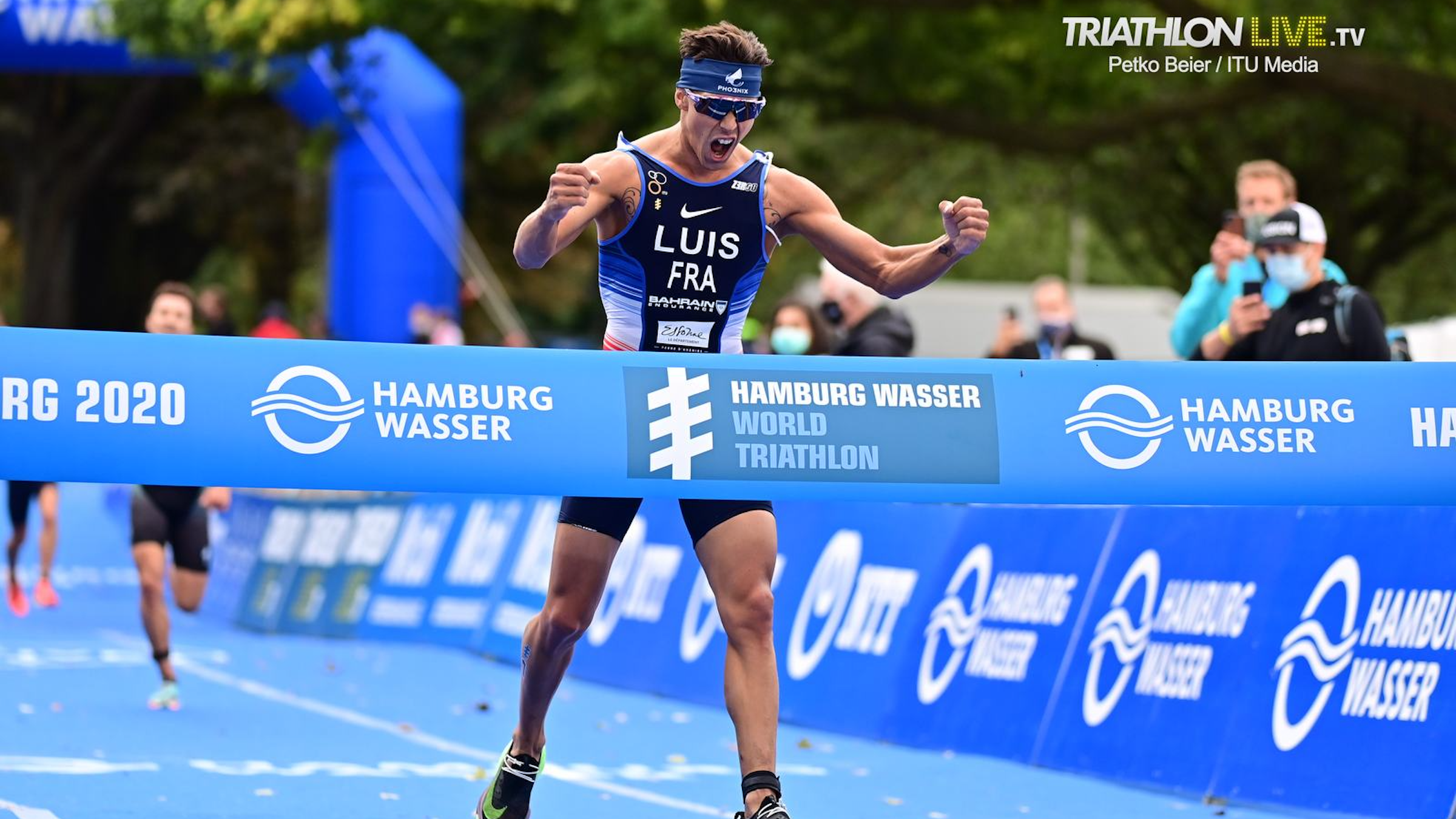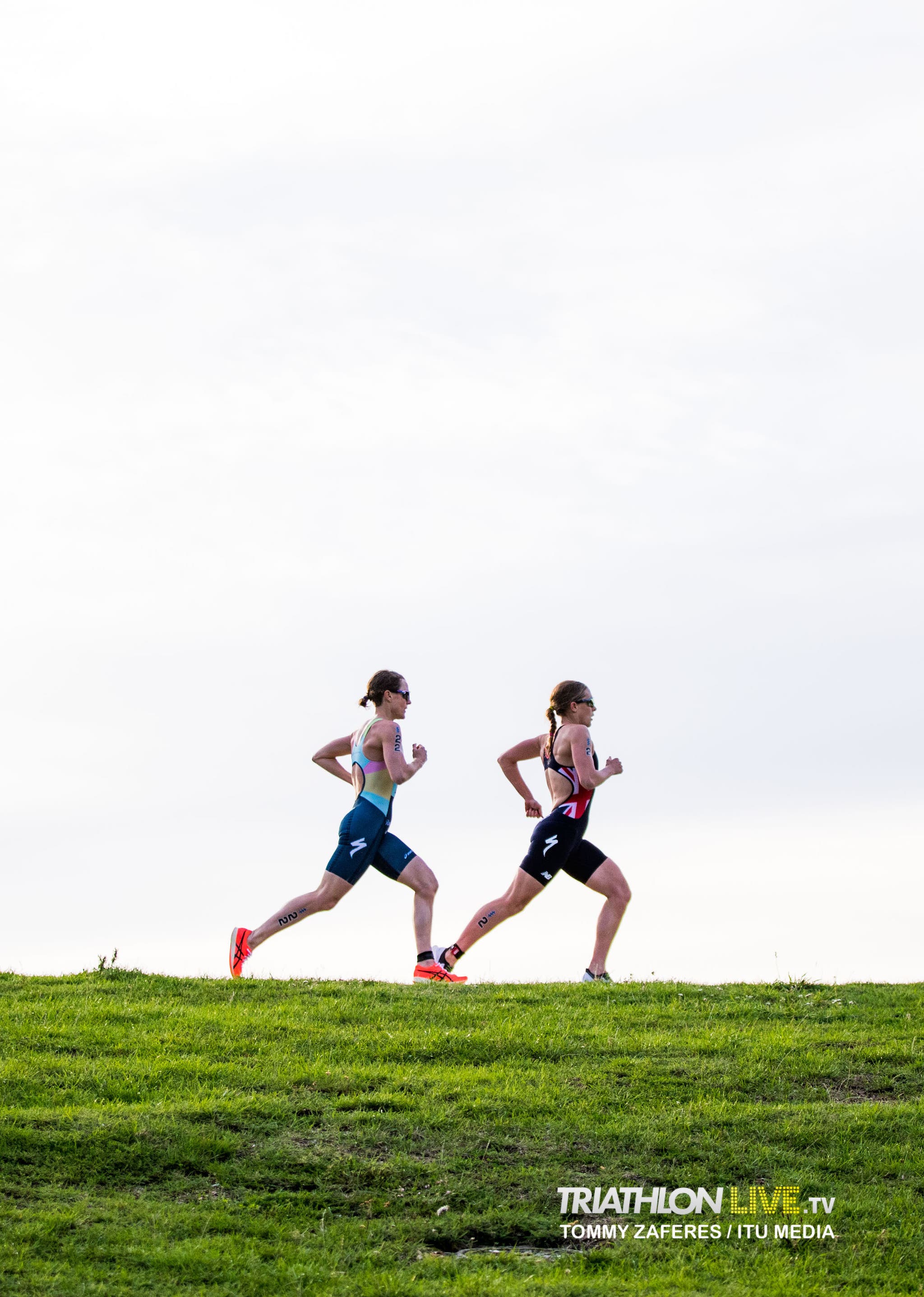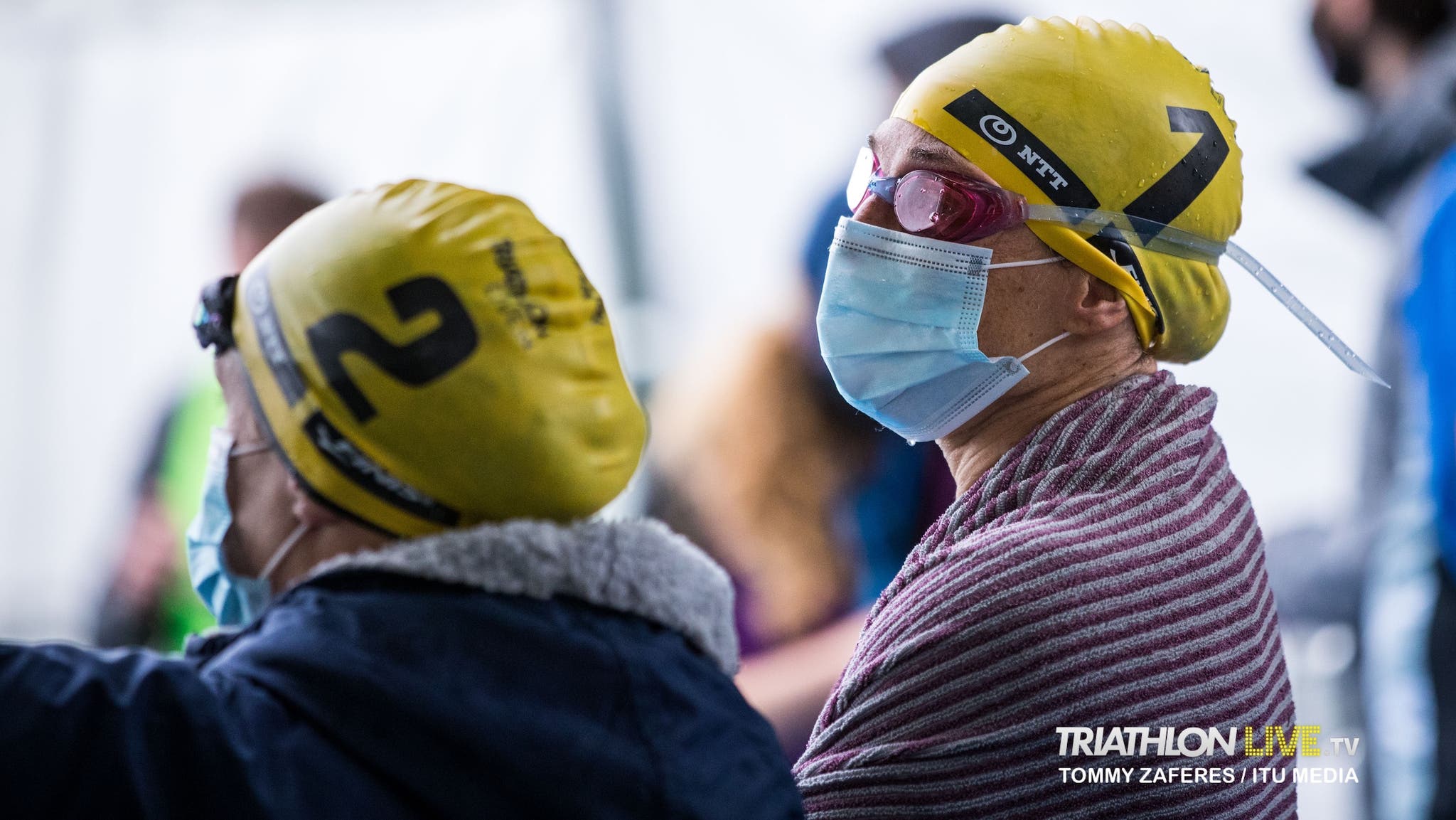Last Weekend Now: Racing Returns With A (Most Of The) World Championship

(Photo: Petko Beier/ITU)
Last Weekend Now is your Monday morning rundown of what’s happening in pro triathlon, brought to you with commentary by Brad Culp. (Ed note: So yell at him if you don’t like the comments.)
Triathlon is back.
I know this is the third week in a row that I’ve started this column by writing that, but this time I actually mean it. This weekend, we had an ITU [most of the] World Championship, multiple Ironman 70.3 events, and a rugged race in the UK that Alistair Brownlee won a few hours after finishing ninth at the aforementioned ITU [most of the] World Championship.
ITU [Most Of The] World Championship
The title of most beautiful running form in the sport has been passed from Mirinda Carfrae to Britain’s Georgia Taylor-Brown, who won her first world championship on Saturday and made it look easy. Not only does her run form look better than anyone else’s in the world right now, her run speed is on a different level, and with less than a year to go before the Tokyo Olympics, the 26-year-old is now the prohibitive favorite for gold.

No British women have auto-qualified for Tokyo thus far (Taylor-Brown and Jessica Learmouth were famously disqualified for holding hands at the Tokyo Test Event), but Taylor-Brown and Learmouth are essentially locks for the squad. They’re also Britain’s two best female athletes for the relay, so there’s no chance either one is left off the team. That means either Non Stanford (a former world champion who was fourth at the Rio Olympics) or Vicky Holland (a more recent world champion who was third at the Rio Olympics) won’t be in Tokyo. Holland competed in Hamburg this weekend but lacked her usual results—posting after the race: “I came, I raced, I didn’t conquer anything but I worked out how to wear a mask over the top of a swim cap…” And Stanford did not race due to injury—and was critical of the decision to declare the [Most of the] World Championship a World Championship. With so few events likely to happen before Tokyo, British Triathlon’s selection committee will have a very difficult decision to make.
The American women remain the only ones able to keep pace with the Brits and USA Triathlon will also have a difficult decision to make in the spring. Like Great Britain, the USA also has four legitimate medal contenders on the women’s side, and all four could be valuable additions to the relay.
Summer Rappaport is in the enviable position of locking her spot up at the Tokyo Test Event. Katie Zaferes is in the enviable position of winning the 2019 World Triathlon Series and being the most consistent triathlete in the world over the past few seasons. That locks up two spots, which means USAT’s five-person selection committee will have to choose between Taylor Spivey and Kirsten Kasper for the final spot, and Spivey moved her resume to the top of the pile this weekend. Not only was she fourth in the individual race (one spot ahead of Zaferes) but she proved she’s more of an asset than a weak link on the relay, as she led off and kept pace with everyone except Taylor-Brown. Obviously, the results from Hamburg will be taken with a grain of salt, because of the strangeness of the season and the fact that it was only a sprint-distance affair. Nonetheless, it’s hard to see Spivey not getting a ticket to Tokyo.

If you’re looking for another reason to take these results with grains of salt, look no further than Portugal’s Vasco Vilaca finishing second in only his second WTS event. I don’t know much about Vilaca, aside from the fact that he’s only 21 and his name is awesome, but I know he’s not the second-best triathlete in the world. That result is a testament to how weird this season has been, and why this will never be considered a true world championship. Even Taylor-Brown said after the race that she still considers Zaferes to be the reigning world champ.
Either way, on the men’s side, Vincent Luis is still the reigning world champ, and is a heavy favorite to win France’s first Olympic triathlon medal next summer. Whether it’s sprint-distance, Olympic-distance, or SuperLeague format, Luis has a different gear late in the run and he always seems to kick it in just as his rivals are starting to crack.
ITU Mixed Relay [most of the] World Champs
Luis leads a French squad with an embarrassment of riches, so much so that they didn’t even need him in the Mixed Relay on Sunday. Leo Bergere, who finished third in the individual race, and Dorian Connix, who finished sixth, gave the world champ the day off to win Team France’s third consecutive Mixed Relay World Championship. It’s unfair how dominant France has been in this event, and it’s also unfair that they all look like models. No wonder the French are so smug.
Team USA made it closer than most expected, and after the race there was some controversy over Connix taking advantage of the TV moto to make a gap on the final bike leg. Morgan Pearson, who ran the anchor leg for the U.S., was irate as he crossed the line eight seconds back in second, and he shared some thoughts afterward.
“Most of the U.S. athletes didn’t grow up doing this sport, so I think that lack of racing affects us more in terms of execution, so there’s room to get better,” he said. “On our best day, we will be even closer to competing for the win. I also think that motor pacing helped the French get away on the bike. As the fourth guy, I know that France kept the world champion out of the race, but this race isn’t won on paper.”
After this weekend, Pearson joins his friend and training partner Matt McElroy as essentially locks on the Olympic squad. Winning a medal in the team relay is all about not getting dropped so you can give your anchor leg a chance, and Pearson’s flat-out run speed makes him the obvious choice as the anchor. He was also the top U.S. finisher in the individual race, in eighth. If the U.S. gets a third men’s slot for Tokyo, it’ll come down to Kevin McDowell and Ben Kanute, who could both be nice relay pieces but will be non-factors in the individual race.
My personal view is that the four athletes who contested the relay on Sunday are the four who should be doing so in Tokyo (Spivey, McDowell, Zaferes and Pearson). There’s no weak link on the swim, which is where a lot of gaps open up, and they were just one move on the bike away from going toe-to-toe with the French. Maybe the moto did help the French, but there’s no reason it couldn’t have helped the Americans too. It’s becoming increasingly unlikely that the USA will win gold in the individual race, but they have a good shot to do so in the relay, and I think this is the group that gives them the best chance.
Helvellyn Triathlon + PTO
Alistair Brownlee knows a thing or two about winning gold medals, and he also showed this weekend why he’s an absolute legend of the sport and a complete psycho. After finishing ninth in Hamburg on Saturday, he flew back to home and won the Helvellyn Triathlon, a very challenging 1.6K, 61.2K, 14.5K course in the Lake District of central Great Britain. Here’s what Brownlee had to say about the 16 hours between finishing in Hamburg and starting in Helvellyn:
“It definitely has been the most unique race weekend of my life, but I had made the commitment to be at Helvellyn, so I thought it was important to make it back and race. I finished the race in Hamburg just before 5 pm, was at the airport by 6, and flew back to Manchester via Frankfurt to land at 11 pm. A friend picked me up and drove me to a hotel near the race start and I arrived at 1:30 in the morning. Fortunately, I managed a bit of a sleep in the car, and I was very lucky to not have to bring any equipment with me as friends had taken it up to the race. I slept until 6:30, got up and had breakfast and then went and racked and got ready to race.”
Helvellyn was the latest race to receive a grant of sorts from the Professional Triathlon Organization, with $15,000 up for grabs on Sunday. The race used an equalizer format to pit the men against the women, with the women getting a 28-minute head start. Brownlee erased that deficit and took the lead as the run leg ascended the Helvellyn Summit, which at 3,117 feet is the third highest peak in England.
Brownlee, a PTO board member who was largely responsible for the prize purse in Helvellyn, donated half of his $3,000 first-place winnings to athletes racing who finished outside of the top 10 and donated the other half to the Brownlee Foundation.
We can expect to see PTO chip in prize money at dozens of small, local races all over the globe for the rest of the year. Last week, it announced a $20,000 prize purse for this upcoming weekend’s Canadian Pro Triathlon Championship outside of Toronto. The following weekend, it looks like the PTO will be supporting its first race on U.S. soil at the Bear Lake Brawl in northern Utah. Professional athletes Skye Moench and Nick Chase have pulled together a professional field that will include Ben Kanute, Chris Leiferman, Sam Long, and Joce McCauley, with more soon to be added. Look for an official announcement later this week.
Is PTO’s business model sustainable? Is PTO a business? No one seems to know or care for the time being. Over the course of 2020, it looks like they’ll pay out close to $4 million in prize money with no tangible return, at least not in the short-term. While previous billionaire investors in the sport have eventually waned their interest, Sir Michael Moritz—PTO’s primary investor and the richest man in Wales—appears to believe in the future of long-course professional triathlon. With a net worth of $4.7 billion, throwing a couple of million dollars a year at triathlon isn’t going to threaten his bottom line anytime soon.